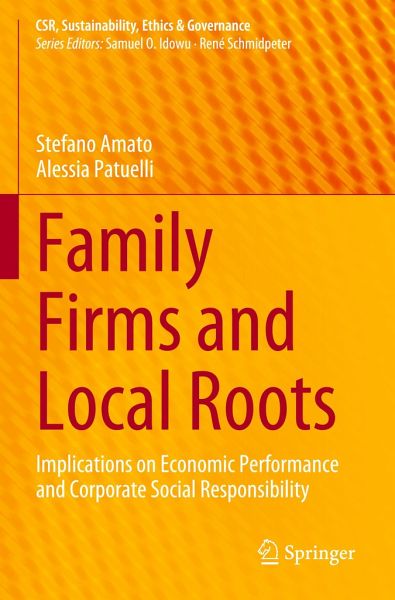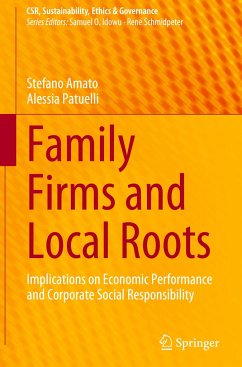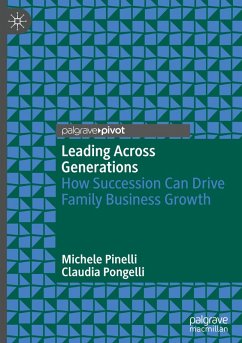
Family Firms and Local Roots
Implications on Economic Performance and Corporate Social Responsibility
Versandkostenfrei!
Versandfertig in 6-10 Tagen
98,99 €
inkl. MwSt.
Weitere Ausgaben:

PAYBACK Punkte
49 °P sammeln!
This book pursues an interdisciplinary approach to studying family firms as a particular type of business strongly embedded in the territories in which they are located. Featuring an in-depth analysis of original research, the book employs both theoretical and empirical approaches to explore family firms and their relationships with their home territories. The book shows that family firms have unique bonds with their local areas, and these bonds profoundly shape their decision-making and outcomes.The book addresses two research questions, namely, how the connections between family firms and th...
This book pursues an interdisciplinary approach to studying family firms as a particular type of business strongly embedded in the territories in which they are located. Featuring an in-depth analysis of original research, the book employs both theoretical and empirical approaches to explore family firms and their relationships with their home territories. The book shows that family firms have unique bonds with their local areas, and these bonds profoundly shape their decision-making and outcomes.
The book addresses two research questions, namely, how the connections between family firms and their home territories originate and develop, and how they influence firms' economic performance and their corporate social responsibility initiatives. Uniquely, it seeks to develop an integrated framework that brings together family firms, local contexts, and places while also presenting new empirical evidence of relevance to scholars, managers, and policymakers alike. In addition, the book responds to the need for a greater understanding of what anchors entrepreneurial families to their home territories and the conditioning effect of local roots on such firms' behavior.
The book addresses two research questions, namely, how the connections between family firms and their home territories originate and develop, and how they influence firms' economic performance and their corporate social responsibility initiatives. Uniquely, it seeks to develop an integrated framework that brings together family firms, local contexts, and places while also presenting new empirical evidence of relevance to scholars, managers, and policymakers alike. In addition, the book responds to the need for a greater understanding of what anchors entrepreneurial families to their home territories and the conditioning effect of local roots on such firms' behavior.












